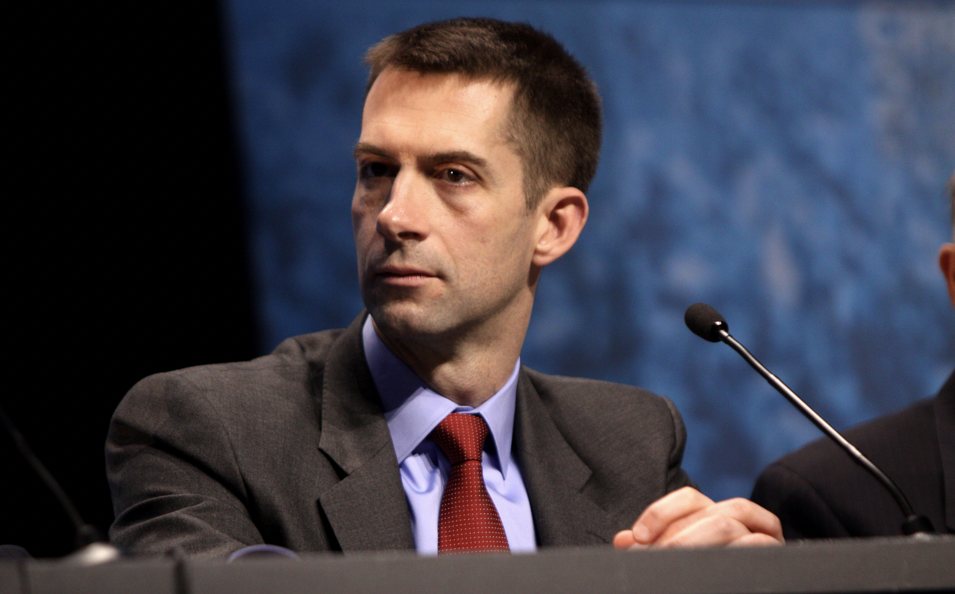Rising Stars: How Three Senators Represent the Diverging Branches of American Conservatism

Much media attention has been devoted recently to the perceived "selling out" of American conservative politicians. Many who were once detractors or opponents of former president Donald Trump now are eager for his favor, and perform public auditions for the vice presidential nomination on talk shows and at rallies. Even Nikki Haley, perhaps Trump's fiercest critic in the 2024 nomination contest, pledged to vote for him in November, though Trump has not initiated a dialogue with her following her withdrawal from the race in March. Trump seems to have gained the loyalty, or at least fealty, of the entire party, but it may not be quite as simple as that. The once clear vision of the Republican Party is now fractured by sub-movements: isolationism, pseudo-warhawk interventionism and, as always, the ever present battle for states rights. American conservatism is not thriving nor is it fading, rather it is splitting, refracted into various forms and upheld by opposing standard-bearers.
There are three politicians who epitomize three faces of the party: Senators Tom Cotton, Marco Rubio and JD Vance.
Cotton's career began in 2006 when, as a US Army platoon leader in Iraq, he wrote an open letter to The New York Times accusing its journalists of espionage for publishing details of a military operation into terrorists's finances. The newspaper refused to run the letter, but it was released on conservative websites, making Cotton a darling of the Right. Following the end of his tour in 2010, Cotton ran for Congress in 2012 in his home state of Arkansas. Endorsed by figures of the Tea Party and the establishment (including John McCain), he won by a handy margin in a cycle where House Republicans lost eight seats overall. In 2014, he challenged Democratic incumbent Mark Pryor for his Senate seat and won a large percentage of the vote. Next year, he will run against Joni Ernst of Iowa for the position of Senate Conference Chair, the number #3 position in the Republican conference.
Ideologically, Cotton shares much with Dick Cheney or former UN Ambassador John Bolton: promotion of a strong military presence abroad, hawkish foreign policy and leeway for torture of military prisoners. His social positions are understated and his goals opaque; he supports a twenty-week abortion ban, but nothing more, and he refused to vote against the certification of the 2020 presidential election. In terms of his personal appeal, he seems to follow the model of the first President Bush, as they are both Ivy League educated veterans who struggle with charisma and energy in their speeches. Cotton's Republican Party is intellectual and elitist, often effective. He seeks positions of power over those of fame, and fights small battles in the Senate over tariffs and ranked-choice voting.
For the first years of his career, JD Vance followed a remarkably similar trajectory to Cotton. They both came from humble origins (Cotton was raised on an Arkansas cattle ranch, Vance in industrial Ohio) and were highly educated (Cotton at Harvard, Vance at Yale). Vance's Hillbilly Elegy, a memoir of his childhood in the Rust Belt, gained traction with the Left, and he was even lampooned by The New Republic as "liberal media's favorite white trash-splainer." He was initially critical of Trump, even going so far as to call him "America's Hitler" in private messages, but when he returned to Ohio in 2018, he cast this past aside, instead embracing Trump as he prepared to run for Senate. He passed on a bid at Sherrod Brown's seat, and instead ran in 2022 for the vacancy left by the retiring Rob Portman. He beat Rep. Tim Ryan using a combination of race-baiting fear tactics and hardline stances on abortion and gay rights.
Vance leads a conservative vanguard movement in step with Trump and his loyalists. He purports to speak for the disadvantaged, rural whites of Ohio, West Virginia and parts of Pennsylvania and Kentucky, a group increasingly crucial to the Republican base. He is a populist at core, and drew bipartisan criticism for his isolationist principles, including his statements that aid to Ukraine was for buying its ministers "bigger [yachts]." As opposed to Cotton, who has stayed staunchly intellectual and literate, Vance has crafted an image similar of a man who sticks up for the little guy and are no better than their constituents. He upholds Trump's "America First" agenda in his legislative priorities, and pushes for radical conservatism. In a recent Politico profile, the headline asked pointedly, "Is There Something More Radical Than MAGA? JD Vance Is Dreaming of It."
Finally, consider the character of Florida's Marco Rubio. Coming up in the state house, Rubio drew attention as a young, Hispanic Republican, as much of an oddity then as now. Following his much heralded election to the Senate in 2010, he was under consideration, along with then-Governors Nikki Haley and Bobby Jindal, in Mitt Romney's VP search as a young person of color to counter Obama's image of social change and diversity. Rubio declined Romney's overtures and launched his own campaign for the presidency in 2016. Latching onto witty debate performances and support from segments of the establishment, he won delegates in several early primaries, before dropping out following a loss in his home state. He declined to be considered for a position in Trump's administration in 2016, and was neither a supporter nor critic in his first term.
Rubio has often fallen short of the expectations provided for him by the media and his fellow Republicans. His campaign was heralded as ushering in the new face of the Republican Party (a recent feature in Politico described the hope provided to conservatives when he appeared with Haley and Scott at a campaign event), but it eventually failed at preventing the onset of Trump and his set of angry white Americans who were angered by Obama's presidency. His policy positions are neither inventive nor necessarily radical; he favors interventionism in the Middle East and Asia similar to the latter Bush, and a "leave it to the states" approach on essentially everything else. Rubio can be seen as part of a dying breed of moderate conservatives, holding the mantle of Romney and McCain. Unlike Vance's brash populism and Cotton's shrewd thoughtfulness, Rubio's is hardly compelling to members of his party or voters. He is, at last, a falling star.
It was reported that Trump is considering Rubio, Cotton and Vance for his vice presidential pick, and has submitted vetting requests to all three. Trump will have to consider both whose branch of conservatism will benefit him in the election, and which he wishes to carry out should he be elected. One may be chosen, the other two rendered obsolete.
